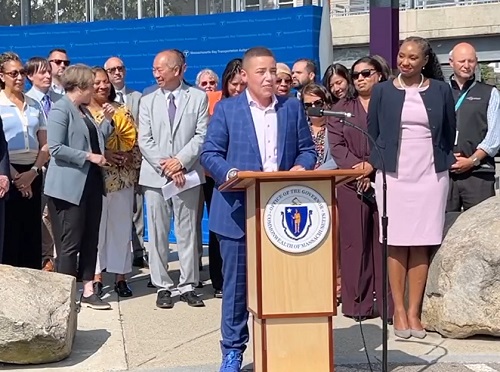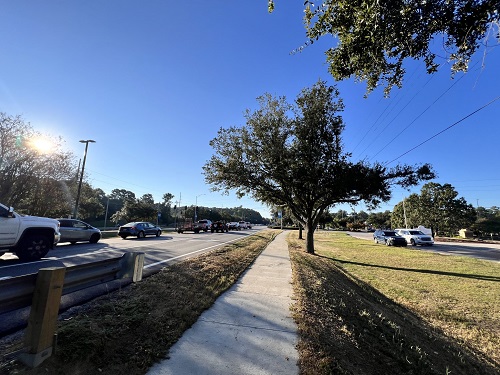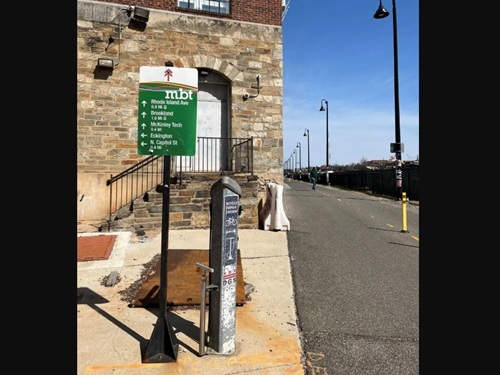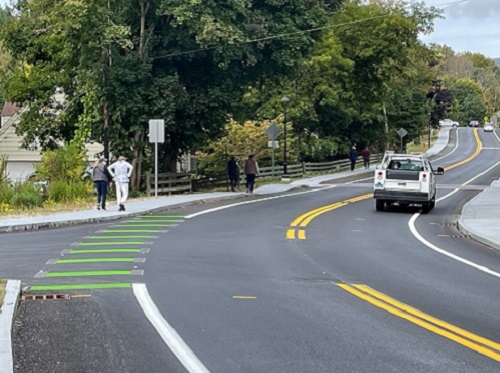The Massachusetts Department of Transportation recently issued nearly $3 million via its new Transportation Management Associations or TMA grant program to support 18 projects that encourage alternative transportation options, reduce greenhouse gas emissions, and expand mobility.
[Above image by MassDOT]
The agency said those grant awards include funding to operate and publicize shuttle buses, promote biking, facilitate carpools, and more.

MassDOT noted that a TMA is a non-profit, membership-based organization that focuses on improving transportation options and infrastructure within a specific region or community; typically formed through collaboration between local businesses, government agencies, and community stakeholders to address the unique transportation needs of their respective regions.
The agency noted that TMAs implement programs and initiatives aimed at promoting alternative transportation methods like carpooling, vanpooling, biking, walking, and public transit usage. They also provide transportation-related services, including shuttle bus programs, carpool matching services, and commuter incentives – all geared towards reducing single-occupant driving.
“The projects funded by our new TMA program will help workers access jobs and support employers who want to recruit and retain talented employees – while moving us closer to a greener and cleaner future,” said MassDOT Secretary & CEO Monica Tibbits-Nutt in a statement. “This is just another example of how vital a robust transportation network is for economic development and opportunity.”
State departments of transportation across the country provide support to a variety of active transportation endeavors.

In early October, the Alabama Department of Transportation approved TAP funding to continue expanding walkways for pedestrians in several communities located in the southwestern part of the state.
In September, the Maryland Department of Transportation announced that is developing what it calls a “landmark action plan” to improve and expand trail connectivity statewide.
The agency said this plan will guide future investment in shared-use paths, helping to advance efforts to reduce greenhouse gas emissions, boost alternatives to driving, and prioritize the safety of all road users across the transportation network.
Updated for the first time in more than a decade, the agency said its revised “Maryland State Transportation Trails Strategic Plan” should be completed by 2025.
Also, in May, the Utah Department of Transportation issued nearly $95 million to support 19 trail projects – including the construction of new paved trails as well as funding for planning efforts to fill in existing trail gaps – as part of creating a regional “Utah Trail Network” across the state.
The agency said that it collaborated with communities statewide regarding the allocation of that funding – approved by the Utah Transportation Commission – to select the key projects for this statewide trail network.
Additionally, the Texas Department of Transportation is developing a Statewide Active Transportation Plan or SATP to gather recommendations for improving bicycling, walking, and rolling conditions across the Lone Star state.
TxDOT noted the SATP is being integrated with its other long-range mobility plans to help it maintain a safe, accessible, connected, and fully integrated multimodal transportation system for the future, since the population of Texas is expected to grow by 28 percent by 2050.
 Active Transportation
Active Transportation



